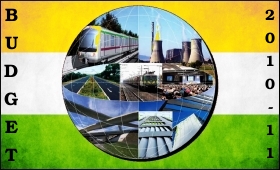|
|
|

|
Budget 2019: Boosting new investments through tax-strategy
|
|

|
|
| Top Stories |
 |
|
|
|
Taponeel Mukherjee | 30 Jun, 2019
All eyes are on what policy mechanisms will the Hon. Finance Minister of
India use in Budget 2019-2020, to boost consumption and investments in
India. Amongst the wide variety of available strategies, a focus on
utilising tax-rebate strategies such as allowing high accelerated
depreciation to promote new investments in areas of the economy that
require investments is one that can help significantly. Strategies such
as accelerated depreciation at a fundamental level can be understood to
be ones that allow a business to make capital investments and utilise a
higher percentage of the value of the investment to lower profits
upfront to pay lower taxes. The primary aim of the Indian government to
employ the strategy mentioned above in this years budget is to create
incentives for investors to invest in capital formation in
mission-critical sectors.
While the aim always is to boost
investment and consumption in an economy, certain areas like social
infrastructure assets such as water, low-cost housing, urban
transportation like metro and waste-to-energy businesses need additional
impetus since at times the financial returns alone do not capture the
real economic value that the underlying asset creates. Therefore, tax
strategies that incentivise capital formation assume prime importance
for such sectors.
The investment areas, as mentioned earlier,
tick the box regarding three crucial points - 1. The areas mentioned are
seeing a growing natural demand driven by consumption patterns and
lifestyle changes, 2. There are significant gaps in terms of available
infrastructure and required investments, and 3. The user charge one can
generate may not suffice to pay for the investment returns that
risk-taking investors will expect. For example, the recent water crisis
in Chennai along with the impending need for India to invest into water
infrastructure is a pointer towards the requirement that the budget must
allow for strategies such as accelerated depreciation that encourages
investments in new water assets.
The focus must be on the
creation of necessary assets, that provide not only valuable services
but also boost investments, credit-flow and employment generation. The
"notional tax revenue" foregone through tax-rebate strategies for
mission-critical assets pales in comparison with both the financial and
social value generation that vital assets provide. Primarily, the
creation of much-required assets and infrastructure will provide
significant economic and social benefits. Therefore, short-term notional
tax collection requirements must be understood to be what they are,
i.e. short-term.
Additionally, new investments lead to the flow
of credit, creation of jobs, upgrade in the skill sets of the workforce,
greater confidence in the Indian investment horizon for investors and,
most importantly, the availability of much-needed infrastructure
services for the public. Essentially, all the aims that a budget and,
more importantly, the government looks to achieve.
It is essential to realise that effective tax-rebate strategies must be utilised not only in this year's budget
but
must continue to be used in the future to boost investments in sectors
that require significant capital inflow. A pick up in capital inflow
must not act as a deterrent to such policies in the future. On the
contrary, sectors that do benefit from tax-rebate strategies may need
extended periods of such approaches to create the volume of assets
indeed required.
Given the wide variety of investments and
expenditure that the government needs to make on its account,
"tax-rebate" from both this year's budget and future policies must be
looked at in detail. We must also realise that private capital needs to
earn a healthy rate of return to both attract investments in the first
place and for entrepreneurs to be able to reinvest the money. That said,
a delicate balance will have to be maintained to ensure that excessive
profiteering isn't indulged in by private capital and the sectors that
receive such "tax-rebate" strategies are genuinely deserving of these
rebates. The tax-rebates must also be available for both domestic and
foreign capital. Allowing a higher flow of capital across investments
will only help both attract more significant investments and bring down
the cost of capital.
While the Budget 2019-2020 will address a
wide-ranging set of issues in an economy as diverse and complex as
India, a renewed focus on utilising tax-benefits in areas that both
require investment and have high-demand will be one that merits
attention. In the long-run, prudent policies and consistent
implementation will be the two pillars of boosting investments and
consumption in India.
|
|
|
| |
|
|
|
|
|
|
|
|
|
|
|
|
|
|
| |
| Customs Exchange Rates |
| Currency |
Import |
Export |
US Dollar
|
84.35
|
82.60 |
UK Pound
|
106.35
|
102.90 |
Euro
|
92.50
|
89.35 |
| Japanese
Yen |
55.05 |
53.40 |
| As on 12 Oct, 2024 |
|
|
| Daily Poll |
 |
 |
| Do you think Indian businesses will be negatively affected by Trump's America First Policy? |
|
|
|
|
|
| Commented Stories |
 |
|
|
|
|
|
| |
|